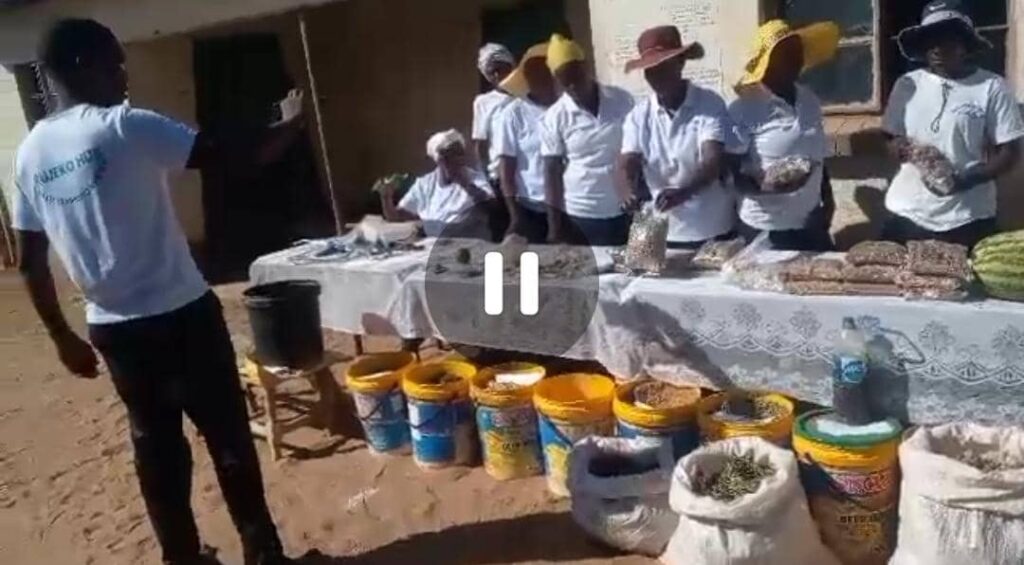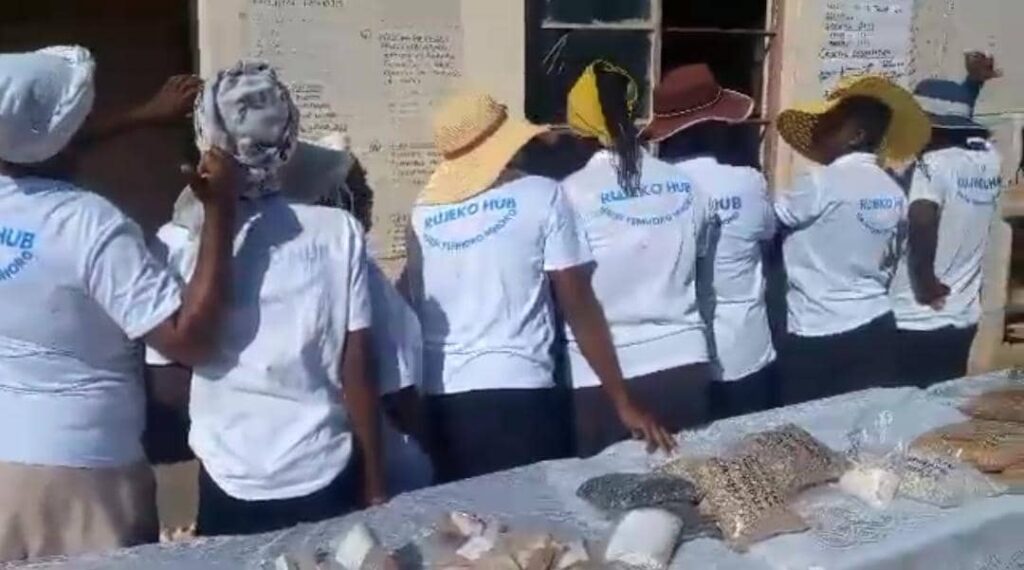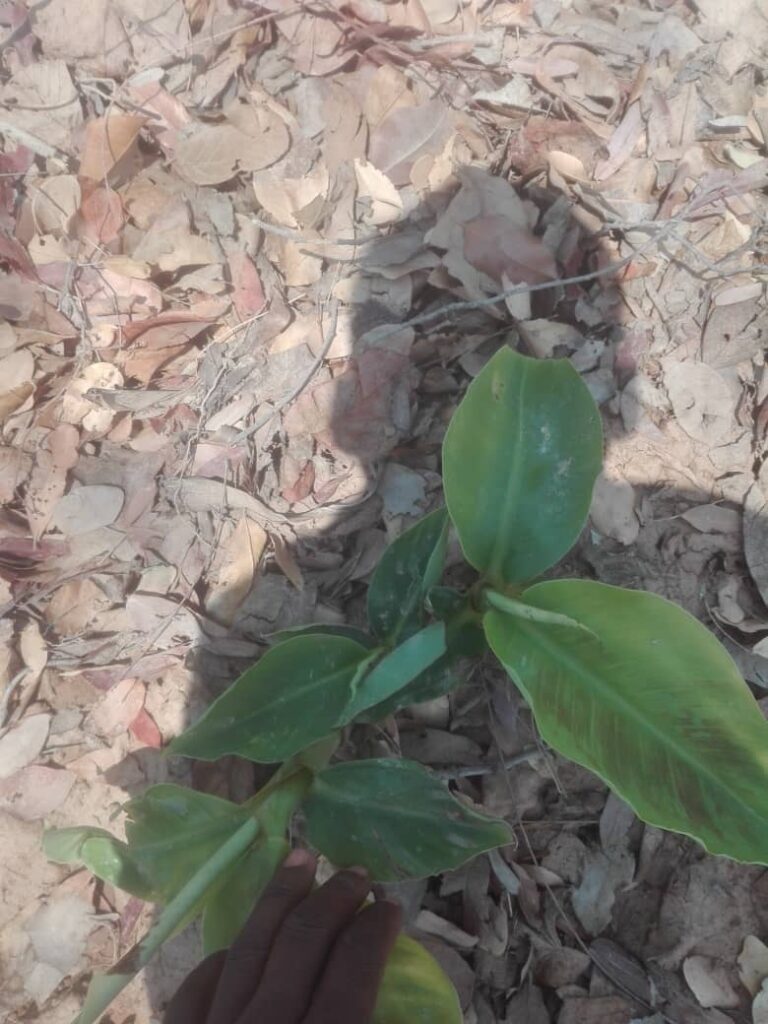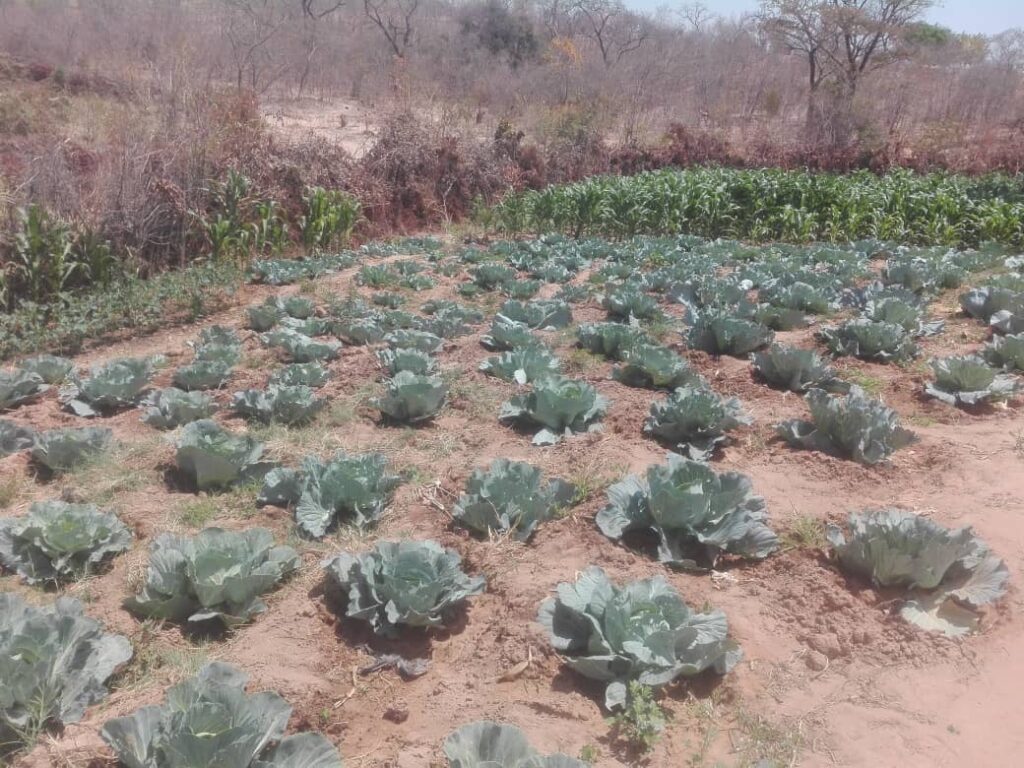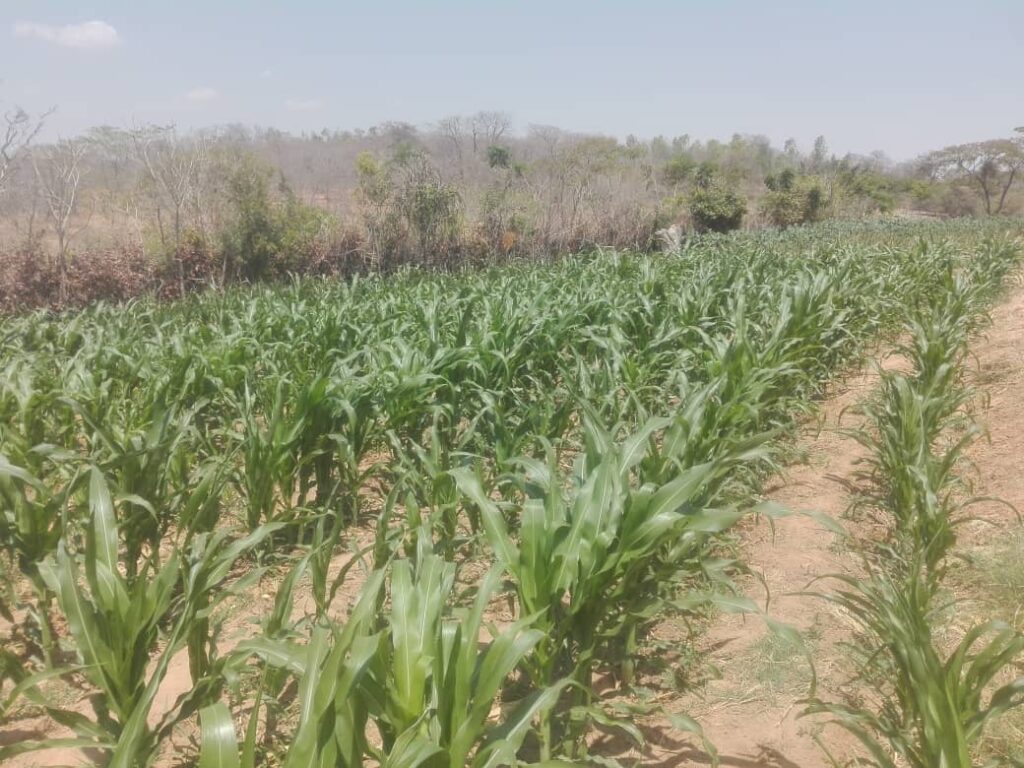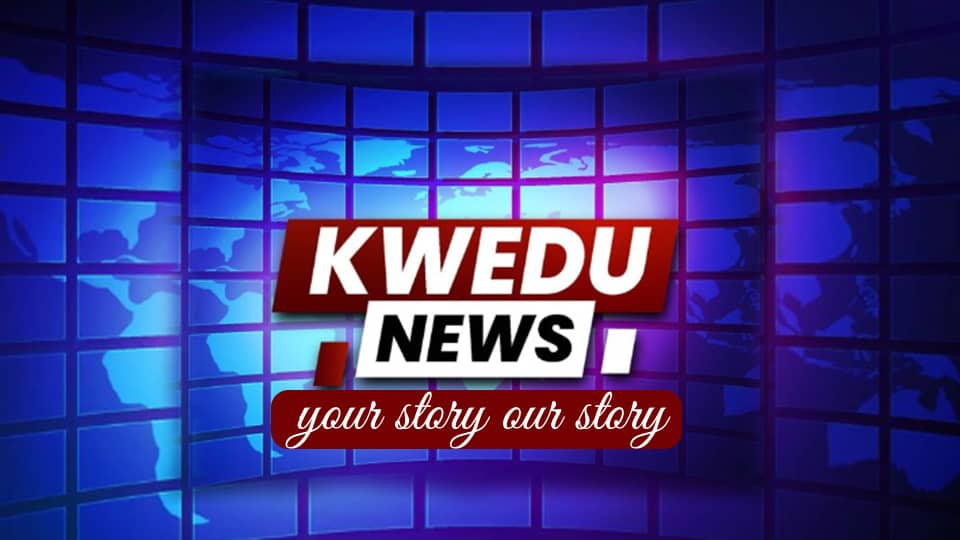…..Amazing Feature story in Rural Zimbabwe where Gokwe Villagers Embark on a Journey to Sustainable Livelihoods
By Delicious Mathuthu
Gokwe, Zimbabwe – As rural communities continue to battle climate change effects in the face of the El Nino induced drought, innovative Gokwe villagers have harnessed locally available natural resources and knowledge to raise capital to start sustainable community projects.
One such example is Rujeko Hub, a rural community-driven initiative in Gokwe South’s ward 13, which is emerging as a beacon of hope and resilience for locals.
Driven by local Non-Governmental Organisations (NGOs) such as the Zimbabwe Coalition on Debt and Development (ZIMCODD), which imparts knowledge and training on financial literacy, the need for sustainable rural livelihoods and climate proofing by local communities, some projects have began to bear fruits.
Tendai Bhamu, a senior Social and Economic Justice Ambassador under ZIMCODD, and a key member of Rujeko Hub, narrates how they utilised local resources to kick start their project, which has now attracted assistance from other NGOs to boost their efforts.
So far they have managed to install a solar system for irrigation.
“We saw that watering the garden was going to be a problem so we went and got a quotation for a solar system.
“To raise the needed funds we started looking for wild herbs to make tea leaves for sale, we also made millet and rapoko-meal, goat medicine from wild herbs and managed to raise US$200.
“We also contributed $10 each from our pockets, all 21 of us, which gave us US$210 plus the US$200 we raised, which gave us US$410 capital in total.
“So we bought two pumps, two solar panels, pipes and two electric codes; so watering we are covered now,” Bhamu says.
With the remaining capital they managed to buy banana seedlings to start a banana project which is currently at its infancy.
“Our garden is 3/4 of a hectare and prior to current efforts, we harvested water melons which we sold and got $45, unfortunately most were rotting because of the cold weather.
“We bought cabbage seed, maize seed and fertiliser. So as we speak we have 500 cabbages, as well as a maize crop,” she says.
The Hub members dedicate each Saturday to the garden project, but free to work any other day when the need arises.
The Hub also has a goat project which is doing well, starting from 10 goats to now over 50 animals.
Bhamu says they have also started preparing for the maize summer cropping season with digging of pfumvudza holes
ZIMCODD Youth Integrity Icon from the same area, Isheunesu Tirivangani, says Rujeko Hub’s success story began when Bhamu attended a Farmer Field School (FSS) function in October 2023 with her presentation attracting the attention of the organisers.
“Rujeko Hub stands as a beacon of hope and resilience. This is the story of how Rujeko Hub connected with the Food and Agriculture Organization (FAO) Farmer Field School (FFS) and transformed their community through sustainable practices,” he says.
“After receiving an invitation to a FAO FFS function, Tendai seized the opportunity to share Rujeko Hub’s project, armed with knowledge from ZIMCODD,” says Tirivangani.
“At the time, they had ten goats purchased from Bosh.
“After sharing ideas which aligned to FFS vision, Rujeko Hub began a fruitful partnership with FFS receiving valuable resources and expertise in the process,” he says.
FFS Global Leader, Kim Anh Tempelman, along with Zimbabwe government officials visited the Hub earlier in the year.
“In February 2024, FFS paid them a visit. By then, Rujeko Hub had expanded to ten goats and thirteen kids.
“The FFS team brought seeds, goat fodder and cattle feed. Their comments on Rujeko Hub’s goat-keeping and Sasso poultry project were encouraging,” Tirivangani says.
